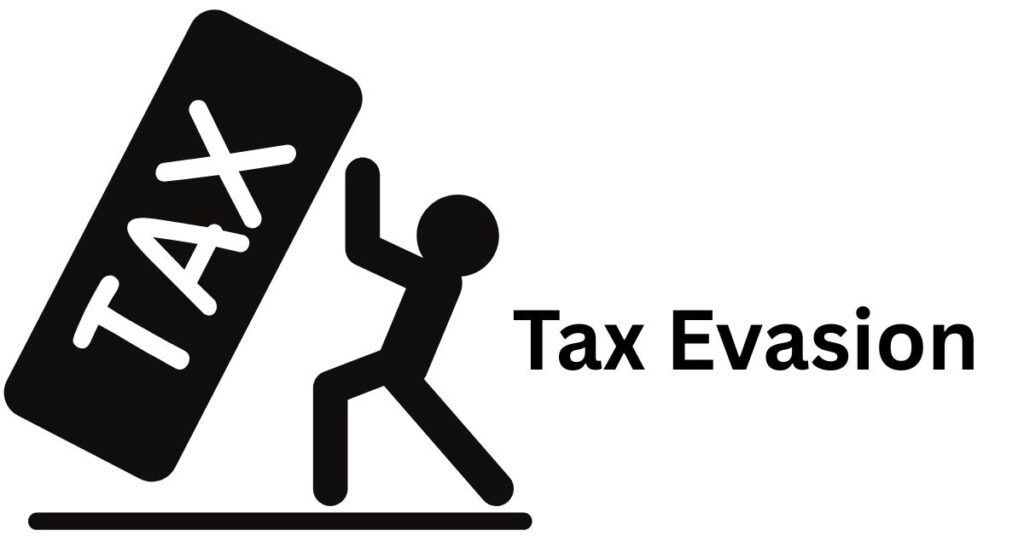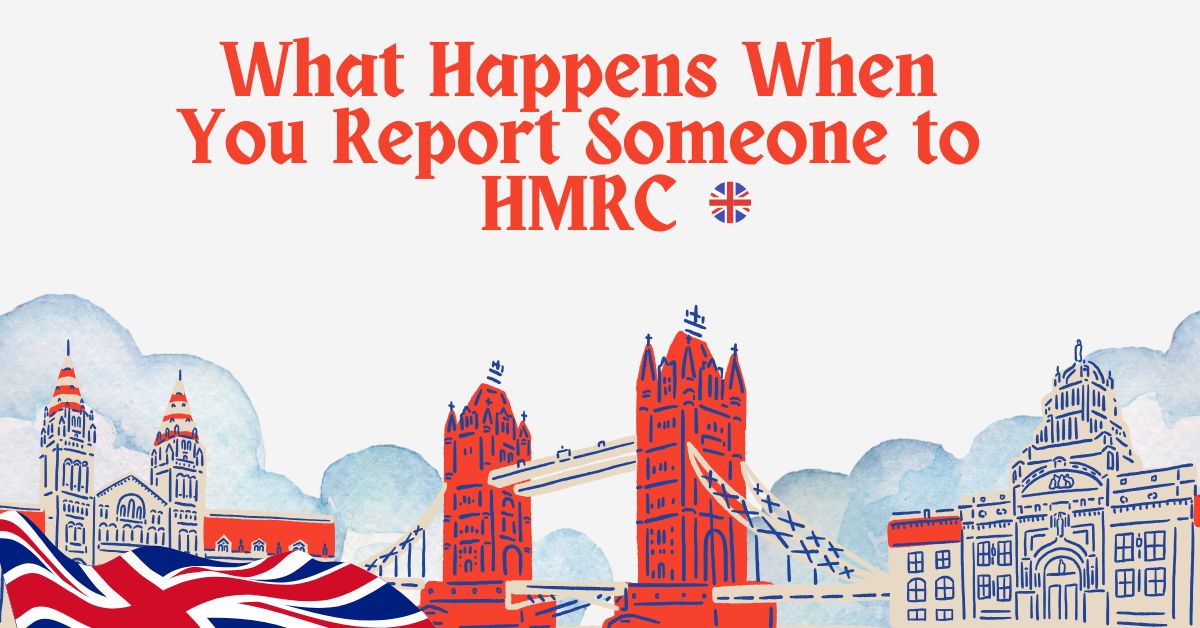Inside the Reporting Process: What Really Happens Next
When I first decided to report someone I knew was hiding income and claiming benefits illegally, I wasn’t sure what happens when you report someone to hmrc. It felt like a big step, but knowing the UK government takes tax evasion and fraud seriously helped me push forward. Reporting suspected individuals or businesses is more than a civic duty—it’s a way to contribute to a fairer economy. Every year, thousands of people feel the same sense of responsibility, especially when they realize how evasion increases the burden on those who pay their fair share.
The HMRC (Revenue and Customs) has detailed procedures to address these cases. Once they receive your report, the initial steps kick off a process that unpacks the issue. The authorities work through recent statistics, review information, and follow laws that govern how taxes are funded and enforced. During this time, they shed light on the practice of avoidance versus evasion, both of which are actively harmful to the public and can lead to serious legal risks. In the 2022-23 financial year, £5.5 billion was lost, with 81% attributed to small entities. The system is designed to prevent further abuse by making businesses responsible for accurately paying the appropriate amount, and for preventing facilitation whenever possible. The article I read at the time really broke it down step-by-step, helping me fully identify what action to take and understand how my report would be handled.
What Really Is Tax Evasion?

Tax evasion isn’t just some abstract crime—it’s the deliberate practice of non-payment of tax to HMRC, often masked under the blurry grey area of tax avoidance. But there’s a stark difference. If a person or company is intentionally dishonest in an attempt to evade tax and cheat the system, that’s evasion, full stop. From smallest businesses to largest corporations, or even a sole trader who lies about income or earnings, the scale doesn’t matter. Whether you’re using overseas accounts to hide profits or avoid paying the right amount, you’re equally guilty in the eyes of the law.
Examples of Tax Evasion
There are many examples of how people commit fiscal evasion: non-reporting of income by failing to file a return, or the misuse of allowable expenditure under schemes designed to offer tax breaks. Using funds for non-qualifying purchases or activities, submitting false expenses to lower bills, and committing fraud through transaction methods using cash or cryptocurrency—all are forms of evasion. Others create fake investments, falsely reporting non-existent organisations, or abuse VAT by submitting bogus repayment claims to recoup more than they paid. Whether it’s laundering money, falsifying returns, claiming credits like Universal Credit while working cash-in-hand, or hiding assets in undeclared properties, the message is clear: any dishonest attempt to duck obligations or dodge the appropriate amount of tax is classed as evasion—and the consequences for individuals and businesses can be extremely severe.
You might also like: What Is Road Tax Really Used For? Revealed
Who Can Report Tax Evasion and Why It Matters

Anyone who suspects an individual or business of evading taxes can report them to HMRC—and that includes you, me, or even a member of the public who notices something unusual. I’ve seen cases where an employee became aware of illegal activities, or a competitor spotted irregularities in practices and acted. Some of the most common signs of tax evasion include underreporting income, overstating expenses, or manipulating accounts to show reduced profit. Others run operations under the table, avoiding official documentation, especially for cash transactions. Even falsifying VAT claims or charging VAT without being registered is a red flag.
If you believe someone is breaking the law, reporting them doesn’t just check a box—it helps protect the services we all rely on. But one thing I always remind people: be sure of your facts and be honest. People usually report others to HMRC for clear reasons like undeclared freelance earnings, rental income, or side hustles. Cash-in-hand jobs, charging VAT but not passing it on, or claiming benefits while working secretly are also typical triggers. And sometimes, the tip-off comes from an ex-partner, a neighbour, or a competitor who knows more than you’d expect.
How to Report Someone: Exploring the Official Channels
If you’re wondering how to report someone to HMRC, there are several reporting channels available that make the process both accessible and anonymous. Whether you’re a concerned citizen or a professional acting on behalf of clients, HMRC offers clear paths for reporting tax fraud and evasion securely and discreetly. Each method is designed to protect your anonymity, and HMRC will never disclose the source to the accused individual or business.
Online Form
The online form on the GOV.UK website is HMRC’s most popular tool for reporting. It’s official, straightforward, and secure, allowing individuals to submit tips anonymously. You can use broad keywords like “VAT” or “false refund claims” to help identify the correct type of evasion. The form covers a variety of cases—from personal income to corporate and VAT fraud—and you simply need to follow the steps and provide as much information as possible.
Tax Evasion Hotline
Prefer a verbal approach? HMRC’s dedicated tax evasion hotline lets you report fraudulent activity by phone. It operates during working hours and supports full anonymity, making it ideal for those who may be uncomfortable with digital reporting but still want to help protect public resources.
Written Reports
For those who favour a physical option, written reports can be sent to HMRC’s fraud investigation office. Though less common, this method suits certain cases, especially when documentation is involved.
Third-Party Reporting
There are also cases where third-party reporting is appropriate. Accountants, legal representatives, or employees may notice illegal activities, irregularities, or misconduct and choose to report on behalf of affected individuals. These detailed reports often contain the most accurate information and have the highest probability of prompting further investigation.
If you’re still unsure, remember: you do not need to provide your personal details or even your name. HMRC is focused on the facts—not the person reporting. And if you’ve ever been approached to join a tax avoidance scheme, don’t take the risk—report it immediately. HMRC is actively cracking down on avoidance schemes to safeguard honest businesses.
What Information Is Required in a Report?
The success of your report to HMRC often depends on the accuracy and detail of the information provided. While HMRC accepts anonymous tips, those that include specific facts are far more likely to be investigated. I’ve seen reports fail due to lack of information, but those with precise data are taken seriously. Even if you’re staying anonymous, here’s what HMRC typically needs for a strong case:
1. Reporter Information (Optional)
You may choose to provide your name and contact details, though it’s entirely optional. The report can still go forward without this.
2. Suspected Person or Business Details
Include the name, address, and if applicable, the business name of the suspected individual or business. These details help HMRC narrow down their focus.
3. Description of Fraudulent Activities
Give clear specifics of the fraudulent activities—this might include hidden income, overstated expenses, fraudulent VAT claims, or undeclared employees being paid in cash.
4. Supporting Documents (If Available)
Though not mandatory, attaching supporting documents like transaction records, emails, or statements showing discrepancies in reporting can strengthen your case.
5. Level of Detail Matters
Even a single accurate line like “Company X pays contractors in cash to avoid VAT payments and doesn’t declare them on returns” has a much higher chance of being reviewed than a vague claim like “they don’t pay taxes.” The more detail you provide, the better—such as names, addresses, National Insurance numbers (if known), or how you found out. And don’t worry if you don’t have every piece of info—HMRC may still investigate with partial info.
Does HMRC Contact the Person Who Reported?
The short answer is no—HMRC usually doesn’t contact the person who reported unless more info is needed. I remember the first time I submitted a tax evasion tip, and I was surprised that I didn’t hear back. But then I learned it’s intentional. HMRC’s aim is to protect the identity of the reporter throughout the process. They understand that many people hesitate to report wrongdoing because of fear of retribution.
HMRC is aware of this concern and has established strict protocols to ensure anonymity. When a report is filed, the individual’s identity is never shared with the suspected evader, and all information provided is handled confidentially. They also do not follow up with the reporter about the outcome of the case, because investigations are classified and can involve sensitive financial details. While this policy may leave some feeling in the dark, it plays an essential role in maintaining privacy and fairness throughout the process.
Can You Get Into Trouble for Reporting?
Not if you’re truthful. But malicious or false reporting can backfire and may even land you in legal trouble.
Legal Protection for Whistleblowers
If you report as an employee, you’re protected by whistleblowing laws under the Public Interest Disclosure Act 1998.
The Impact of False or Malicious Reports
Deliberately false reports waste resources and are taken seriously. HMRC may take action against those who misuse the system.
Recent Updates in HMRC’s Reporting and Investigation Process
In the UK’s Autumn Budget 2024, the government allocated additional funds to HMRC to strengthen its Fraud Investigation Service (FIS). This move responds to a rise in complex tax avoidance schemes and cross-border evasion cases. The budget includes a £100 million boost over the next two years for technological upgrades, training, and better tools across HMRC’s fraud divisions. These investments aim to introduce sophisticated data tracking, predictive analytics, and faster cross-referencing of financial records, allowing HMRC to move quicker and smarter.
The improvements are expected to streamline the investigation process, helping HMRC respond to reports faster and initiate audits or enforcement actions more efficiently. With this funding, greater cooperation with international tax authorities is also anticipated—especially in tracking offshore accounts and assets, which are now a growing concern in serious tax evasion matters.
Initial Steps Taken by HMRC Upon Receiving a Report
When HMRC receives a report, the Fraud Investigation Service (FIS) takes charge of reviewing it. Their job is to decide if the information provided warrants further investigation. This process unfolds in several key steps:
1. Screening and Review
In this first stage, all incoming reports are screened to assess their credibility and potential impact on the tax system. Investigators may cross-check the report against existing records, such as VAT filings, income declarations, and prior tax returns to spot inconsistencies or red flags.
2. Risk Assessment
Next comes a risk assessment. HMRC prioritizes cases based on the potential tax loss. High-value cases—like those involving large businesses or wealthy individuals—receive the highest priority. However, smaller cases are not ignored if there’s a considerable risk of loss.
3. Allocation to Investigation Units
If a case passes the risk test, it’s allocated to a relevant team within the Fraud Investigation Service. For example, a case involving corporate fraud might be handled by the Corporate Crime Division, while VAT-related issues go to the VAT Compliance team. These specialized units ensure that the investigation is conducted by experts in the relevant field.
Commencing a Formal Investigation
Once assigned, the team commences a formal investigation. This may involve auditing financial records, conducting interviews with involved parties, and applying data analytics to uncover discrepancies or hidden income. In more serious matters, HMRC may collaborate with outside agencies like the National Crime Agency (NCA) or Serious Fraud Office (SFO)—especially when criminal elements or complex fraud is suspected.
What Happens After You File a Report?
Not all reports result in a full investigation. Sometimes, HMRC determines there’s not enough evidence or the tax loss doesn’t justify further action. But when the case proceeds, the consequences can be severe—ranging from fines, backdated tax payments, to even prosecution. The process begins with an initial assessment of the report’s credibility, followed by a risk analysis. If there’s significant risk to the public purse, the matter is escalated, and in serious cases, HMRC launches an inquiry involving audits, interviews, or even raids.
Outcomes and Consequences of an HMRC Investigation
Once HMRC completes an investigation, the outcomes depend on the findings and the severity of any tax discrepancies. For individuals or businesses that have knowingly or even unknowingly underpaid taxes, the implications can vary. They may face financial penalties or, in serious cases, criminal prosecution. The resolution process also considers the level of cooperation from the taxpayer and whether the error was intentional or not. The recent 2024 Autumn Budget brought legal adjustments that introduced stricter and more defined consequences for tax fraud, increasing pressure on high-value evasion.
Possible Outcomes of an HMRC Investigation
HMRC may take no further action if the case involves minor, accidental, or non-existent discrepancies. In such aspect enquiries, if initial concerns are resolved without proof of substantial wrongdoing, no follow-up is required. If minor errors or unintentional underreporting is found, HMRC may make adjustments to tax liability, requiring the individual or business to repay the shortfall, sometimes with interest, but without penalties. For more significant or intentional issues, financial penalties apply, often calculated based on the nature of the underreporting. These can range from 0% for genuine mistakes to 100% for deliberate concealment. In cases of full cooperation, voluntary disclosure settlements are possible—like through the Contractual Disclosure Facility (CDF)—allowing individuals to admit wrongdoing and avoid further action. However, if HMRC uncovers deliberate fraud, criminal charges may follow, particularly for large-scale or repeated fraudulent activity. Convictions for tax fraud can result in heavy fines, community service, or even prison sentences, with public cases acting as a deterrent.
Financial Penalties for Tax Evasion: An In-Depth Look
Financial penalties are the most frequent consequence of tax evasion, and they can vary significantly depending on the type of evasion and the taxpayer’s behaviour. The penalty system is structured not only to recoup unpaid taxes, but also to act as a strong deterrent against future non-compliance. HMRC may impose different types of penalties depending on what the investigation reveals.
Example
late payment penalties apply when taxes are overdue. The fine is based on the length of delay—if a payment is more than 30 days late, HMRC charges 5% of the outstanding amount, with added charges for longer delays. Inaccuracy penalties occur if mistakes are found in a tax return. Careless errors, like failing to double-check, may result in penalties from 0% to 30%. Deliberate errors, where incorrect details are knowingly submitted, carry penalties between 20% and 70%. When errors are concealed intentionally, fines can reach 100%. For offshore tax cases, where income is hidden in foreign accounts, the penalties are even stricter—often starting at 100% and going up to 200%, with the added risk of criminal prosecution in serious cases. Since 2024, behaviour-based penalties have been updated to fit modern challenges. Taxpayers who cooperate may see their fines reduced by up to 50%, but those who obstruct investigations or hide assets face harsher outcomes.
Conclusion
Reporting tax evasion is both a civic responsibility and a way to support fair contributions to the UK tax system, but it must be done carefully. Making false accusations or submitting unsupported claims can cause harm, misuse resources, and damage credibility. If you follow the correct steps, and ensure all information provided is accurate and truthful, you help support HMRC’s efforts to maintain fairness and trust in the system.
This step-by-step guide was created to offer clarity in how to navigate the reporting process while preserving your confidentiality and integrity. Reporting someone in good faith, even with a one-off tip or something more serious, can make a difference in the fight against fraud. Just know—once your report is in, HMRC will take it from there, working quietly and thoroughly behind the scenes.
FAQs
Q: Can you report someone to HMRC anonymously?
A: Yes, HMRC allows you to report suspected tax evasion anonymously through its online form or tax evasion hotline, ensuring your identity is kept confidential.
Q: Will HMRC contact you if you report someone for tax evasion?
A: No, HMRC does not typically follow up with reporters regarding the status or outcome of a report to maintain confidentiality.
Q: Will HMRC inform the reported individual that someone has filed a report against them?
A: No, HMRC does not disclose the identity of the reporter or reveal that a report has been filed during investigations.
Q: How long does it take HMRC to investigate a report of tax evasion?
A: Investigation times vary widely depending on the complexity of the case, but some can take several months to complete.
Q: Can HMRC investigate someone without notifying them?
A: Yes, HMRC can conduct covert investigations initially to gather evidence before contacting the individual or business.
Q: What happens if I make a false report?
A: Deliberate false reporting could lead to legal consequences for misusing HMRC’s resources.
Q: Can HMRC prosecute someone based on a single report?
A: Prosecution usually requires substantial evidence, so HMRC would need more than just a report to take criminal action.
Q: What are the penalties for tax evasion in the UK?
A: Penalties can include fines, interest, prosecution, and even prison in serious cases.
Q: How does HMRC prioritize reports of tax evasion?
A: HMRC assesses reports based on the potential tax loss and credibility of the information provided.
Q: Can I be sued for reporting someone?
A: Not if your report is true and made in good faith. False or malicious reports could lead to legal trouble.


1 thought on “What Really Happens When You Report Someone to HMRC?”